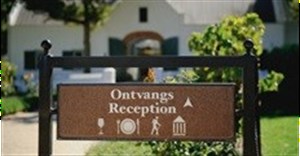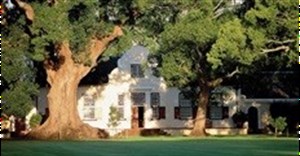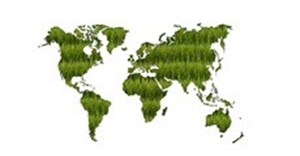#AfricaMonth
Trending
Elections 2024
Jobs
- Events, Conference and Wedding Manager Vereeniging
- Admin Clerk Cape Town
- Tourism Update - Sales Executive (Junior to intermediate) Johannesburg
Awards celebrate SA wine tourism

Proudly South African
The GWC was represented at the awards by André Morgenthal, marketing manager of Wines of South Africa (WOSA), who said that SA compared well with other top wine regions in the world.
The ceremony was attended by several local wine and wine tourism experts, as well as foreign diplomats and other dignitaries. The occasion was also addressed by the Western Cape MEC of Agriculture and Rural Development, Gerrit van Rensburg, and executive mayor of the Cape Winelands District Municipality, Alderman Cornelius de Bruyn.
Robert Joseph, an international wine tourism expert, was the keynote speaker and provided perspective on how well SA compares with the rest of the world in terms of best practice. Joseph was of the opinion that SA wine tourism compares well with more established markets, and said that for a long time, SA did a much better job of wine tourism than even France.
Joseph is a wine writer (thewinethinker.com), and as author of international wine guides he has travelled to wine regions all over the world. He also consults with the wine tourism industries in various countries about offering world-class wine tourism experiences.
Joseph said La Motte Wine Estate, overall winner of the Best of Wine Tourism Awards and winner in the Sustainable Wine Tourism category, is already getting a lot of things right in terms of what is considered international best practice in wine tourism.
"I've been coming to South Africa since the late '80s and I have seen a complete revolution in the SA industry. I am dazzled by the quality of the wine, the people, the food, architecture and accommodation. South Africa is genuinely one of the most exciting wine tourism countries in the world. I would like to add my congratulations, as La Motte is already doing many of the things I have been talking about for many years, in terms of wine tourism best practice," Joseph said.
Room for improvement
Joseph said that while he has seen the SA wine tourism industry making great strides in the past decade, there is a lot that can still be learnt by the wider wine industry about offering great wine tourism to guests.
Joseph believes wine tourism should be an inclusive form of entertainment and that the industry makes a mistake when it thinks of wine tourism as only wine tasting and buying. Wine tourism could learn from golf tourism which offers a whole package and experience.
Joseph also believes wine estates should learn to charge for their offerings: "If you charge say R20 for a tasting, you think about the value you are offering. When an experience is free the visitor is always aware that he is taking up your time and time is money."
Joseph said the Napa Valley in the USA is good at creating the perception of good value, offering two-for-one coupon specials for wine tastings: "It is a different approach and it works." Wine estates also have to consider selling branded memorabilia to visitors. "La Motte is smart to sell soaps and hand lotions, made from their own essential oils, since it's displayed in your bathroom for 365 days, whereas wine is often stored in a wine cellar most of the time," said Joseph.
Broadening the client base
Joseph also encouraged the industry to not only target the wine drinker as a client, but also his/her group and especially the non-drinking members of a group, such as the "designated driver", people who do not like wine, their children and even their animals. Here, entertainment and the facilities on offer also play an important role. "Make it a great place to visit, also for non-drinkers," added Joseph. It will become increasingly important over the next decade to accommodate non-drinkers, he believes, because of the prospect that blood-alcohol limits for drivers will be reduced to zero.
Joseph considers it important for local players in wine tourism to embrace technology, especially social media and cellphone-friendly media. He believes there are exciting ways to use Instagram, photos, QR codes, video, mobi and the web, as well as search engine optimisation (SEO) to better communicate with wine lovers. According to Joseph, it is especially important to immediately respond to their questions and complaints and to invite them to visit the wine estate.
Furthermore, in the international market, wine farms are expected to be able to assist a visitor who wants to buy a bottle of wine for an overseas friend. Visitors want to be able to buy the bottle of wine from the tasting room, while the cellar, with the assistance of a distributor, delivers the bottle of wine to the friend internationally, instead of shipping an individual bottle of wine at an enormous cost.
Building relationships
Joseph also believes the industry should learn to create a community with neighbouring farms and other neighbours like restaurants, museums and tourist attractions, instead of trying to capture visitors. A more altruistic attitude could help to uplift the tourism sector as a whole. "Make friends with your local hotel concierge - bribe him with a bottle of wine if need be - since he can direct visitors to you and you can direct visitors to him," said Joseph.
If the South African wine industry as a whole learns to deliver world-class service and builds long-term relationships with visitors - making them ambassadors of SA wine tourism - the industry has the potential to grow. A developing wine tourism industry could assist job creation and the SA economy as a whole.















